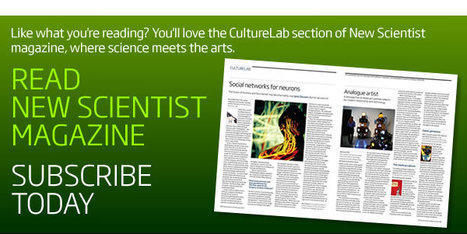Algorithms have developed into somewhat of a modern myth. They “compet[e] for our living rooms” (Slavin 2011), “determine how a billion plus people get where th
Get Started for FREE
Sign up with Facebook Sign up with X
I don't have a Facebook or a X account

 Your new post is loading... Your new post is loading...
 Your new post is loading... Your new post is loading...
|

luiy's curator insight,
March 26, 2013 3:50 PM
Will the open data movement be a force for community-led democratisation or for a new wave of algorithm-driven corporate giants? There are worrying signs of the latter.
A recent white paper from CapGemini on unlocking economic value by opening up government and public data highlights Silicon Valley real-estate advertising company Zillow to show the economic benefits of open data. Built on open tax data, county records and home-for-sale listings, Zillow launched a free service last October, listing homes going through the foreclosure process – and also potentially exposing the owners' financial troubles to neighbours and employers. Is this reckless profiteering the democratisation we are looking for?
There is no doubt that more government data can usefully come out from Whitehall and local town halls, but we should not to be swept away by the appealing language of openness.
There is room for a number of models when providing access, including non-commercial licences, closed partnerships between cities and citizen groups, and the use of non-standard formats for sharing that reflect the quirks of individual cities. Each of these breaks the idea of "openness" in one way or another, but we should be prepared to do so.
Openness itself is not a virtue, and it's time the debate moved beyond it. 
Filipe MS Bento's curator insight,
March 27, 2013 10:23 PM
Linked Open Data (data placed in context by interconnecting several sources, data interlinked so to become more useful) and Open Data (raw data from research, census, public data, etc.): one word makes all the difference. |












Abstract:
Algorithms have developed into somewhat of a modern myth. They “compet[e] for our living rooms” (Slavin 2011), “determine how a billion plus people get where they’re going” (McGee 2011), “have already written symphonies as moving as those composed by Beethoven” (Steiner 2012), and “free us from sorting through multitudes of irrelevant results” (Spring 2011). Nevertheless, the nature and implications of such orderings are far from clear. What exactly is it that algorithms “do”? What is the role attributed to “algorithms” in these arguments? How can we turn the “problem of algorithms” into an object of productive inquiry? This paper sets out to trouble the coherence of the algorithm as an analytical category and explores its recent rise in scholarship, policy, and practice through a series of provocations.
Keywords: algorithms, governance, automation, computation, big data, sociology, law, public policy, control